Discovering Plants and Animals Volume Two: Europe and U.S.A.
Sample Textbook | Sample Student Pages
Learning about Plants and Animals
Animals are fascinating to study. There seems to be no end to the unique creatures that live in every corner of the world. From mouflons and chamois to hoopoes and European wild cats, help your students discover hundreds of animals that live throughout Europe, the United States, and the territories of the United States as well as some of the many kinds of plants grown and crops raised there.
Discovering Plants and Animals, Year Two is a self-paced science unit study for grades 3-6, although it’s flexible and can be used for younger or older students. It covers all 48 independent countries of Europe, all 50 of the United States, and the territories of the United States broken down into 38 lessons so students can focus on just a few countries or states at a time.
Discovering Plants and Animals, Year Two can be used as a stand-alone science unit study, however it was created to accompany Daily Skill Building: World Geography & History, Year Two and follows along with the lessons in that full-year curriculum.
Study Native Plants
Europe and the United States are home to many fascinating species of plants and animals. Discover breathtaking plants, trees, and flowers such as:
|
|
Learn about Habitats
Explore various habitats of Europe and the United States in Discovering Plants and Animals:
|
|
Discover Animals of Europe and U.S.A.
Have you ever heard of a karakul? What about a Rhesus macaque? When researching the animals in this part of the world, we were amazed at the many different animals we had never heard of before. Plus kids can learn about where some of their favorite dog and horse breeds come from! If your students love learning about animals, they will be sure to eat this up! Here’s just a few of the animals we cover:
|
|
Student Book
The Student Book includes comprehension questions that follow the main text for each lesson. Various optional additional activities are provided in the student book. They include notebooking pages to encourage deeper study of a particular animal or plant, habitat templates for exploring the habitats they encounter, extension activities, and a bonus presentation project.
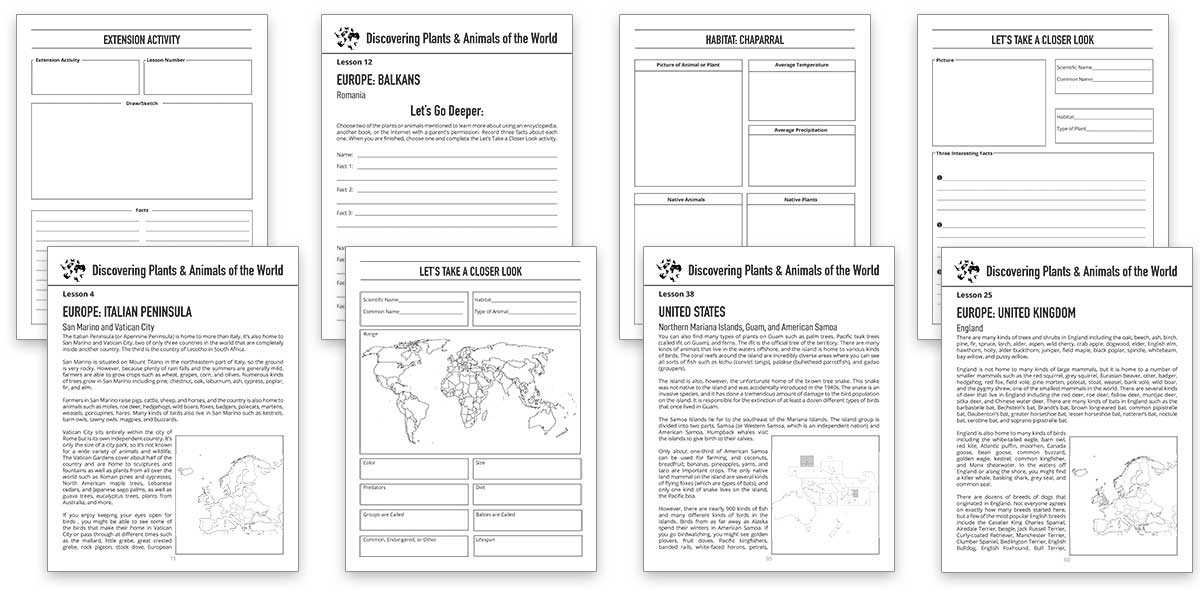
- Let’s Take a Closer Look: With this printable, your student can choose an animal or plant to do deeper research on. They can use the template to record the information they discover.
- Habitat Templates: This set of 13 templates allows your student to investigate the plants and animals that live in a particular habitat and record what they find. A bonus blank template is also included for your student to research additional habitats if desired.
- Extension Activities: This set of questions challenges your student to go deeper on topics briefly mentioned in the unit such as aquaculture or fish farming. A notebooking page is included to record answers.
- Bonus Extension Activity: This bonus project suggests topics for a presentation related to the unit that your student can do and lists several options for the type of presentation, though the options are endless.
An answer key is also provided.
This science unit can stand alone, but if you want your kids to learn more about Europe and the United States, check out Daily Skill Building: World Geography & History, Volume Two, which covers the same countries in the same order. A How To guide is also provided for completing both curricula together.
The main text is 96 pages and can be viewed on the computer rather than printed. The Student Book & Answer Key is 200 pages.

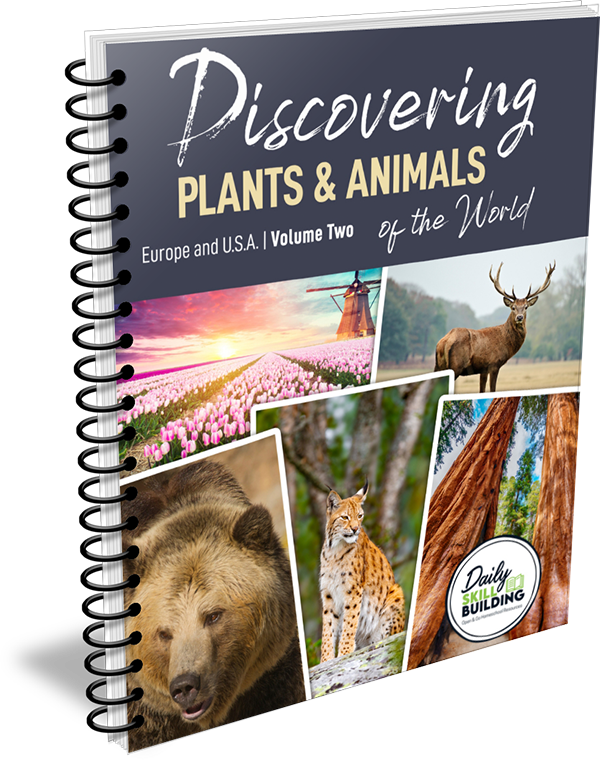
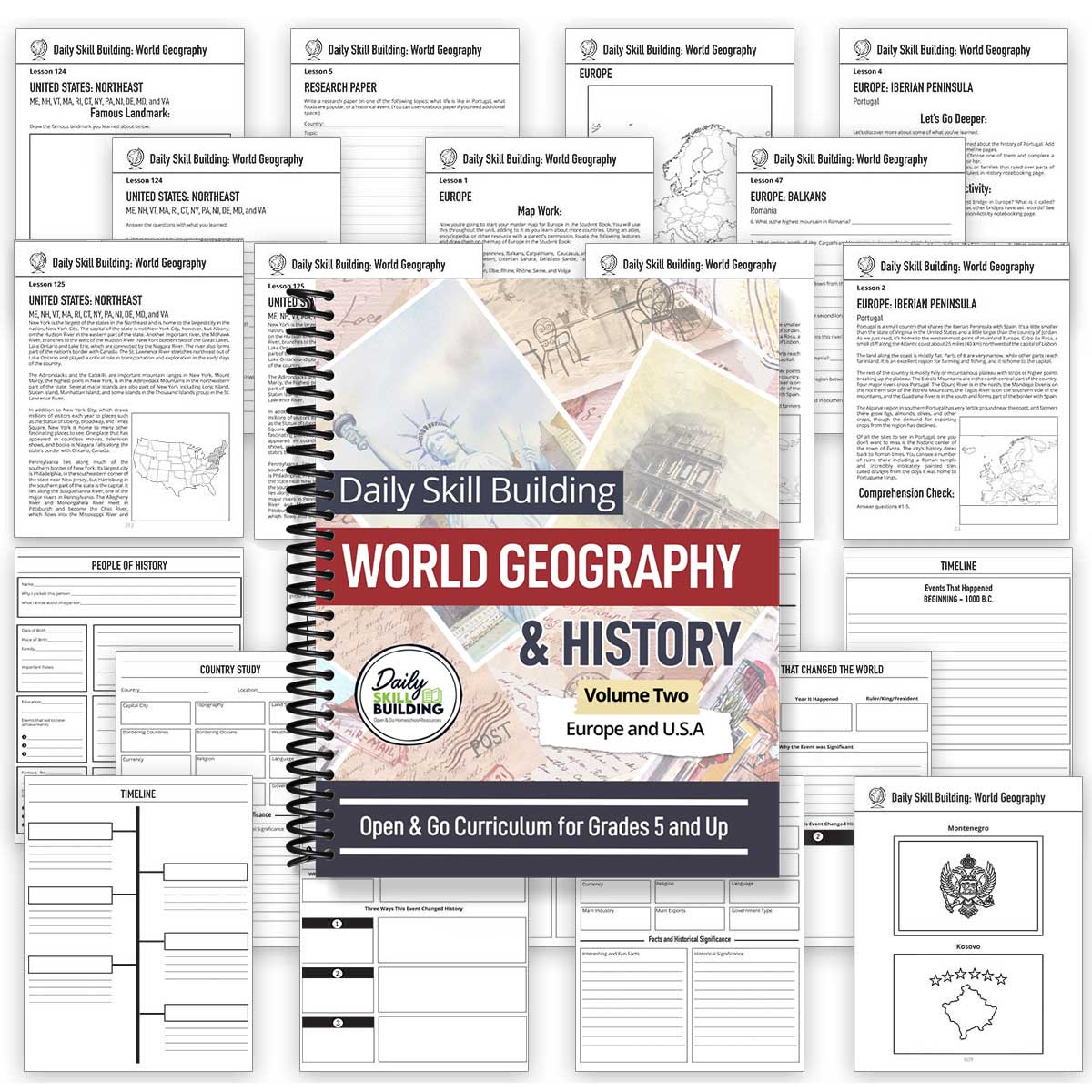

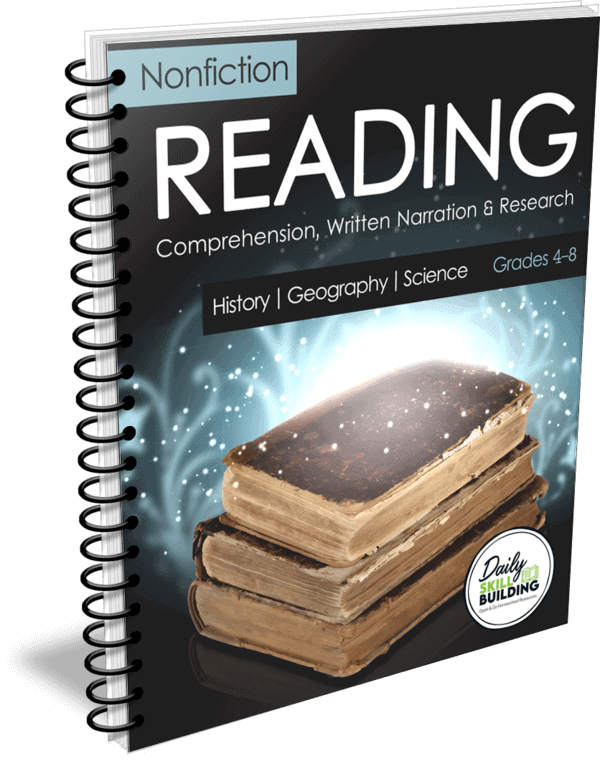

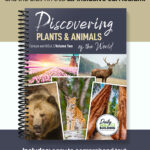
Katherine Tanyu –
Volume 2 is the Europe and U.S.A. version of this series. This is a wonderful resource to learn more about the specific animals and fauna of each region. It is fun and certainly interesting to know that there are certain species that grow/live in certain places only. This series does an excellent job of laying it out. Discovering Plants & Animals of the World 2 is best suited for grades 3 and up.
Melanie Zorr –
My 5th grader started this last week. We are taking it slow and really working to absorb all of the information. I have been looking for something like this for a while. I was looking for something that gave both a thorough understanding of WHERE things were, as well as WHAT makes up area such as the rivers, farmland, etc. I also wanted something that provided a more rounded view of the whole picture. I really like this notebooking bundle. By including the Discovering Plants and Animals notebook, my son and I are better able to see what animals and plants go where, which then helps as we read about them or hear about them in other parts of our curriculum. The World Geography and History can be used as a stand alone history or as a supplement to any other history curriculum. We are using this as a supplement to our history. We are currently on Lesson 3 of the World Geography and History and on Lesson 1 of the Discovering Plants and Animals. He is studying the country Portugal. In the downloads file there is a ‘text’ book or informational book and a student notebook. Each lesson corresponds to a portion in the student notebook. The Geography offers chances for finding both physical characteristics such as rivers and mountains as well political characteristics such as the country’s location in the world. I am so excited to continue this with him over the next year as well as starting it again with my younger students as they get to this point. I really like this notebooking bundle.